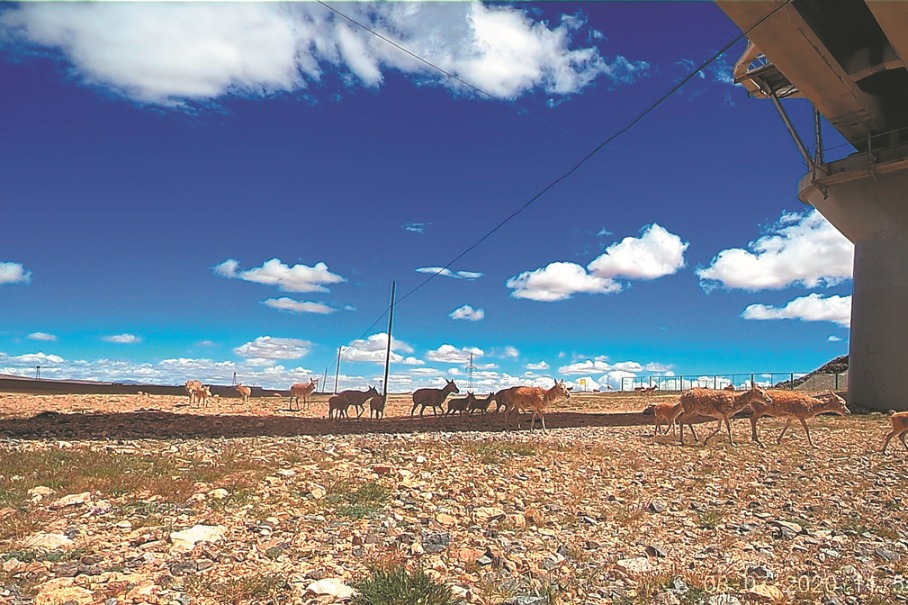Eldercare services essential to rural revitalization


The Communique of the Third Plenary Session of the 20th Central Committee of the Communist Party of China stressed that integrated urban and rural development is essential to Chinese modernization, and all-around rural revitalization should be pursued.
The rural social security system provides greater economic security for elderly people today thanks to government policies such as the basic pension insurance program for urban and rural residents and subsidies for senior citizens. Despite this, elderly people in rural areas do not get adequate care and medical services. In fact, both market-oriented and non-market-oriented eldercare services in rural areas are the weak link in China's rural social security system.
Therefore, it is necessary to improve the resource and multilevel service structures to meet the various needs of the elderly people in rural areas.
Most elderly people living in rural areas prefer to stay in their own homes rather than old people's homes, and an increasing number of disabled people in rural areas need regular eldercare and healthcare services.
However, there is a lack of at-home eldercare providers in rural areas due to the shrinking of household size, higher labor costs, migration of working age people from rural areas and non-farming rural population. The problem has become even more complicated because the rural population is aging at a faster pace due to the drastic increase in life expectancy in China.
Hence, the government needs to take measures to ensure rural areas get enough eldercare providers. This can be done, for example, by encouraging people aged between 60 and 69 to take care of their older relatives, and those with higher self-care ability to take care of those with lower self-care ability. Another option is to form small-scale mutual-aid eldercare groups based on geographical proximity and amiable relationship to provide necessary eldercare services to the needy.
Apart from the government and the market players providing different eldercare services in rural areas, efforts should be made to build nursing homes for the extremely poor people, and daycare facilities to provide food and entertainment activities for senior citizens. Also, privately-owned nursing homes can provide more professional and varied services to the elderly people.
The elderly population in rural areas can be divided into four categories: people short of both resources and self-care ability, people well-off but lacking self-care ability, people lacking resources but with self-care ability, and people who are both well-off and have self-care ability.
While "younger" elderly people can take care of their older relatives who lack both resources and self-care ability, those who are affluent but lack self-care ability can choose to live in commercial nursing homes. Elderly people who lack resources but have self-care ability can turn to neighbors and friends for help. And elderly people who are well-off as well as have self-care ability can seek the services of daycare facilities.
The disabled elderly people require greater attention and regular medical care, but usually they cannot afford to pay for them. Such people can seek the services of younger relatives if they cannot turn to their children or spouses for help.
Although commercial nursing homes can provide professional and higher-quality eldercare services, they are expensive, which means only the affluent disabled and semi-disabled elderly people can pay for their services. And since most daycare facilities charge for their services and may be located far from the villages, not all elderly people can access or afford to pay for their services.
Against such a backdrop, it is necessary to strike a balance between supply and demand in the rural eldercare system by introducing an array of policies. First, the government should shoulder greater responsibility in providing effective eldercare services, and work out detailed plans to optimize related policy systems and institutional frameworks.
Second, a mechanism of collaborative resource supply should be established to provide different types of eldercare services for rural residents.
Third, the authorities should also establish a regulatory system to provide efficient eldercare services in rural areas, improve the monitoring system and cross-department supervision, and standardize specific service supply patterns to ensure the healthy development of rural eldercare services.
Fourth, steps should also be taken to increase the funding channels, and establish a stable fiscal mechanism in order to boost investment in rural eldercare facilities.
And fifth, the authorities should create a friendly environment for the elderly people by increasing public awareness about senior citizens, directing grassroots officials to pay more attention to the elderly population and encourage people to take proper care of their elderly parents.
The author is a professor of School of Public Administration at Northwest University. The views don't necessarily reflect those of China Daily.
If you have a specific expertise, or would like to share your thought about our stories, then send us your writings at opinion@chinadaily.com.cn, and comment@chinadaily.com.cn.
































